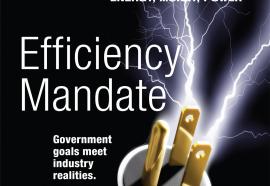Real-Time Control
Engaging customers will require more than TOU pricing.
Imagine a setback thermostat programmed at the factory that the consumer couldn’t modify. Who would want this device? You could give the customer a big enough discount to get her to accept the device, but she would be happier and you could save about as much energy if the customer could decide on the temperature and time settings.






